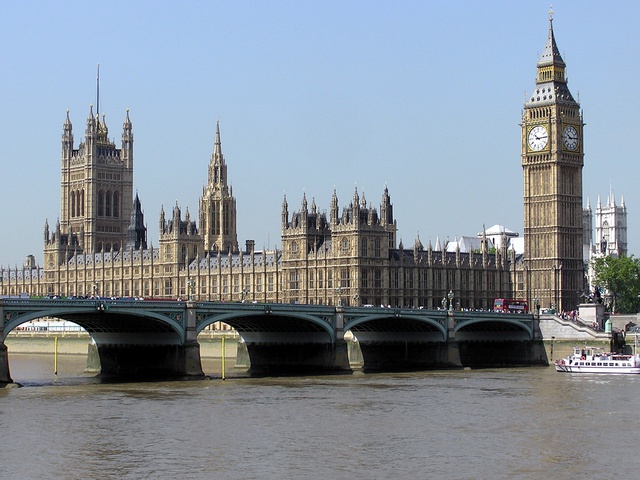How Does Theatre Survive?
21.12.22
Emily Jupp is a freelance journalist for publications including i news, the Telegraph, Times2, Evening Standard and The Stage. Her debut play, Wormholes, premiered at The Other Palace earlier this month.
In the final piece in Jupp's cost of living series, journalist Alun Hood asks what can be done to ensure the survival of one of the UK’s most recognised and admired contributions to global art and culture.
Alun Hood is a reviewer for WhatsOnStage and his blog. He also writes scripts and was a 2016/7 theatre panelist for the Laurence Olivier Awards.
As 2022 draws to a close, theatres all over the land are providing festive entertainment to a populace with less expendable cash in the face of eye-watering increases in the price of life’s basic essentials, while the venues themselves stare down the barrel of rising costs just to keep the doors open. In many cases there is reduced funding, uncertainty, and a depleted, demoralised workforce. Looking ahead, what can be done to ensure the survival of one of the UK’s most recognised and admired contributions to global art and culture?
Financial support is key. Prior to the pandemic, the arts and culture sectors contributed £10.8 billion to the UK economy, according to a report commissioned by the Arts Council. That surely makes the £1.57 billion ploughed back by the government as support at the height of Covid seem paltry, if not downright alarming, given the crisis now looming ahead, one which could potentially prove just as damaging in the long term as the total shuttering that occurred during the lockdowns. Meanwhile, as state spending on the arts increases by 7% in France and Germany, the UK government’s total annual expenditure on the arts remains at £341 million, which sounds a lot until you realise that the French and Germans are contributing €4.2 billion and €2.4 billion respectively.
So, obviously our theatres need more money, as the prices of materials, labour, insurance and, particularly, energy spiral upwards. Ideally, the government needs to implement another such rescue package to cover the bleaker winter months where, once panto season is done, it is tougher to attract audiences. However, as this situation is discrete from the total closure demanded by Covid shutdowns, that support would need to be distributed differently this time, and to focus on slightly different issues.
One possible solution might be an equivalent to President Biden’s 2021 American Rescue Plan (ARP) which distributed $135 billion across the arts and culture sectors of the USA, in recognition of their ongoing value, providing support when all income flow had effectively terminated thanks to the onslaught of the pandemic. Crucially, a tranche of this money included stimulus payments for individual arts professionals p, providing help with essentials such as food, rent, health insurance, rather than just support for organisations and the bricks-and-mortar buildings. This would help ensure that ongoing careers in theatre don’t become the exclusive province of those from wealth and privilege, and could mitigate against another “talent fade”, as Tara’s Artistic Director Abdul Shayek puts it, which will see individuals being forced to leave the industry as surviving in it in the face of a cost of living crisis proves untenable.
Keeping dialogue open in difficult times can only be a positive move, as would establishing the stronger sense of a theatrical community, regardless of venue size, location and income: theatre professionals from all over the UK, including freelancers, coming together to share ideas, support and stimulate discussion in a structured way would also be valuable. A united, well-informed front would provide a collective, organised, nationwide face for lobbying government and the Arts Council. Furthermore, rigorous transparency from all parties about everything from working practices to future planning to financials would increase trust and confidence, at a time when they’re most needed.
Tara’s Abdul Shayek pointed out “structurally, the arts and culture does not have enough money to fund everything” and indeed steeply increased energy costs have already forced venues such as London’s Bush and Park Theatres to close during the day, robbing their respective locals of an essential communality.
Another concern is that programming will become overly “safe”, offering only a steady stream of “crowdpleasers” rather than including innovative original work. While pantomimes, beloved musicals and established classics hold an important place in the canon, solely relying on them will deny vibrant, diverse new voices and result in a theatrical landscape devoid of creativity and experimentation, and the art form will be hard pressed to move forward. Also, without a degree of financial freedom to underwrite work by fledgling artists from non-privileged and/or ethnically diverse backgrounds, theatres run the risk of losing a generation of talent to other mediums and industries.
Independent producer Danielle Tarento, who has mounted work internationally, on UK tour and at London venues including Southwark Playhouse and Charing Cross Theatre states “I’m finding that there is still a palpable nervousness around financial commitment, which is absolutely understandable. But if we don’t dive back in, even if it feels way scarier than before, then how can we regenerate our industry? I think the only way to get back on track is to get on and do it…to make bold, exciting, thought-provoking, challenging and entertaining work that defies audiences not to come to watch!”
Ultimately, enhanced support for our industry to help it navigate the choppy waters ahead can only be a win-win. No other entertainment medium has the same degree of immediacy, nor the ability to stimulate, uplift and educate. The UK’s place on the global theatrical stage is unrivalled: it’s arguably one of the last “great” things left about Great Britain. It has to survive.



